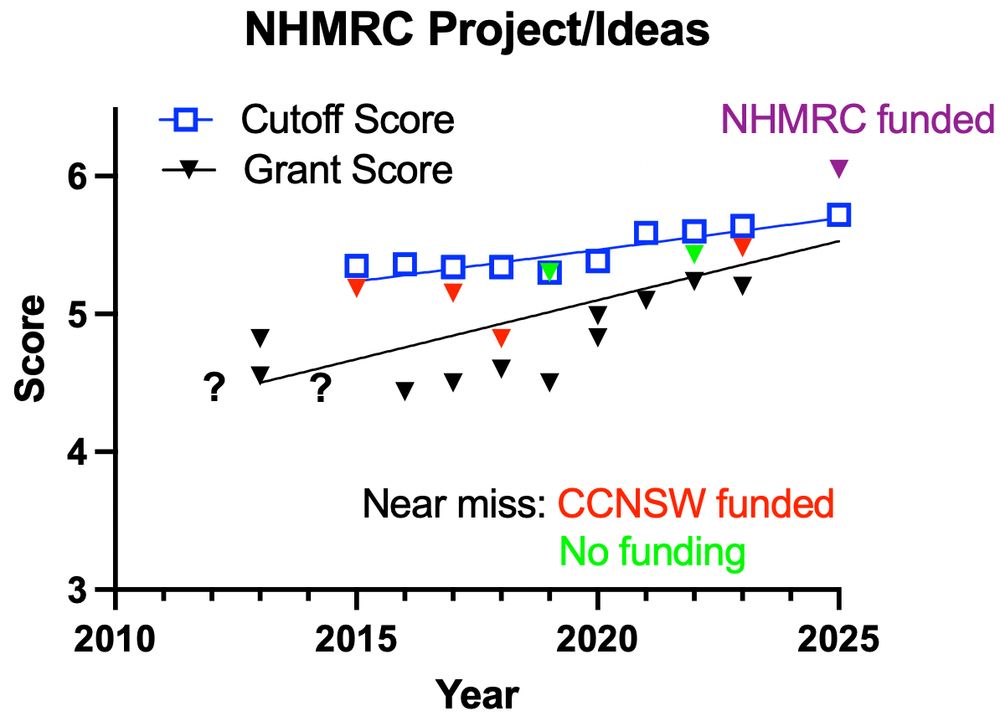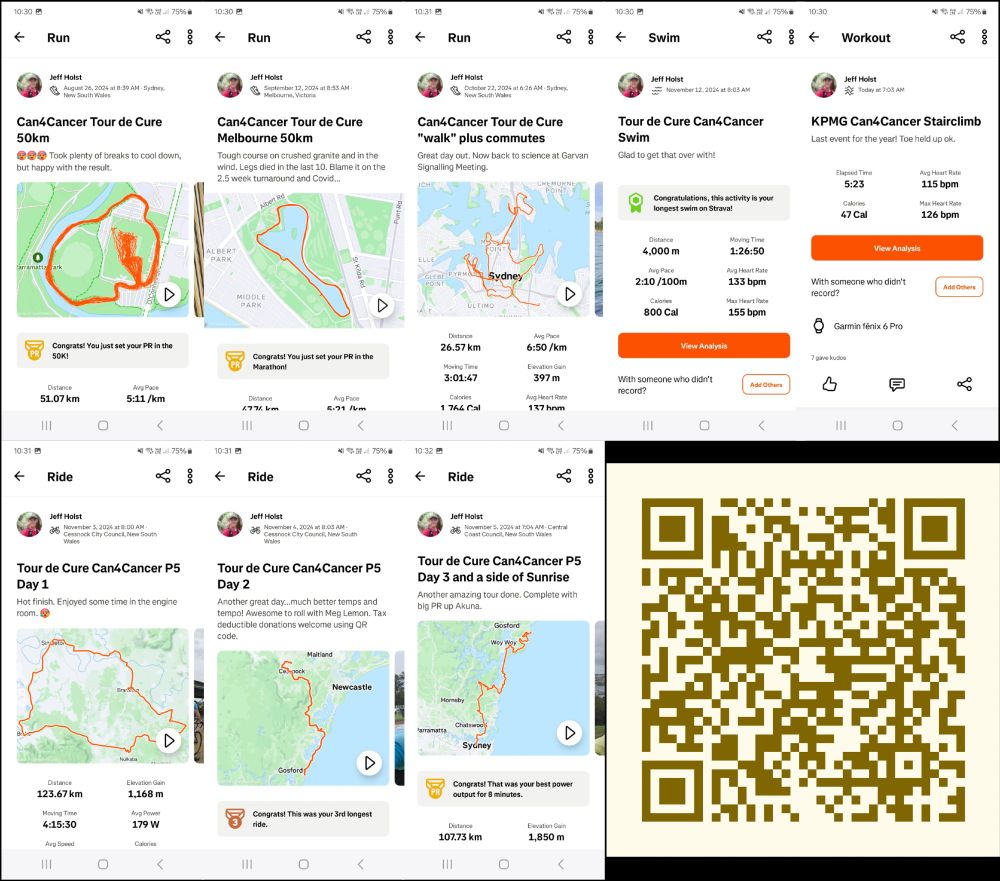
ACMM 2026
20-22 May, 2026
Sydney, Australia
Excited to announce that Registration and Abstract Submission is now open for the 6th Australian Cancer Metabolism Meeting 2026!
Please join us in Sydney for another great conference.
Abstract deadline 20th April.
Registrations deadline 6th May.
Conference 20th-22nd May 2026
www.acmm.au
17.02.2026 21:13 —
👍 1
🔁 1
💬 0
📌 0
Wow...this is just crazy. Makes me incredibly sad to see Springer-Nature blatantly copying and following the dodgy practices of MDPI.
16.06.2025 05:38 —
👍 4
🔁 2
💬 2
📌 0
Anytime Sarah, will always make time for you!
I have to acknowledge a lot of luck/good timing along the way. But happy to share some thoughts on the ups and downs, key decisions and thought processes that have helped me survive in research.
05.02.2025 04:18 —
👍 2
🔁 0
💬 0
📌 0

In addition, pitching to venture capital led to funding through the Medical Research Future Fund.
Take home message?
I have wanted to quit research regularly. The lows are really low.
But if you love research like I do, get good mentors, collaborate and look for innovative ways to get funding.
04.02.2025 22:36 —
👍 2
🔁 0
💬 0
📌 0

3 – Alternative funding sources
I worked hard with our consumer panel to successfully pitch our research for CIA funding from NBCF, PCFA/Movember, Cancer Council NSW, Cancer Institute NSW (including SPHERE/Sydney Cancer Partners), Ramaciotti, Tour de Cure, Charlie Teo Foundation.
04.02.2025 22:36 —
👍 0
🔁 0
💬 1
📌 0

2 – Collaborations
My early work on transporters wasn’t “sexy” research on its own, but was funded as part of larger PCFA/Movember collaborative programs with senior colleagues.
Recent collaborations resulted in MRFF funding as CIA and CIC in areas of research outside my cancer metabolism focus.
04.02.2025 22:36 —
👍 0
🔁 0
💬 1
📌 0

Considering this lack of NHMRC funding, how did I survive?
1 – Luck
Friends and colleagues focussed on the bad luck – many near miss grants within 0.2 of the cutoff (2015/17/19/22/23) were touted as “bad luck” – don’t worry, you’ll get it next year. But I had good luck in near miss grant awards.
04.02.2025 22:36 —
👍 0
🔁 0
💬 1
📌 0
I got bogged down in the detail – a very narrow specific research plan, an inability to communicate the big picture of why my area of research is significant.
I now collaborate widely, with some amazing colleagues outside my institute who can advise and guide my applications and research direction.
04.02.2025 22:36 —
👍 0
🔁 0
💬 2
📌 0

After 11 years of rejection, I learnt not to take the scores personally – but to try and learn from them. The graph below shows my scores have improved over time. But why?
Firstly, looking at my early scores, track record was not the problem, but my scientific quality and significance were low.
04.02.2025 22:36 —
👍 1
🔁 0
💬 1
📌 0

UNSW awarded more than $27m for ideas and development research grants
The NHMRC funding will support 25 projects in medicine, science and engineering.
After 12 years and 20 NHMRC Project/Ideas grant applications as CIA, I was finally successful.
www.unsw.edu.au/newsroom/new...
A short 🧵 here on resilience, luck (good and bad), diversification of funding and the power of collaboration.
04.02.2025 22:36 —
👍 9
🔁 0
💬 3
📌 0
Nice to see our @embojournal.org paper from last year getting a mention on Bsky.
02.02.2025 23:21 —
👍 5
🔁 1
💬 0
📌 0

Reflecting on an amazing year of Tour de Cure fundraising completing 6 events!
Ten years of the #Can4Cancer campaign has contributed ~$20M to cancer research in Aus.👏
Capped off with a $100K grant award from Tour de Cure for our #glioblastoma work!
Dedicating this work to Rohan. Vale my friend.
08.01.2025 21:36 —
👍 6
🔁 0
💬 0
📌 0
In life? Oh, you mean joining BlueSky...
19.12.2024 00:55 —
👍 2
🔁 0
💬 0
📌 0







